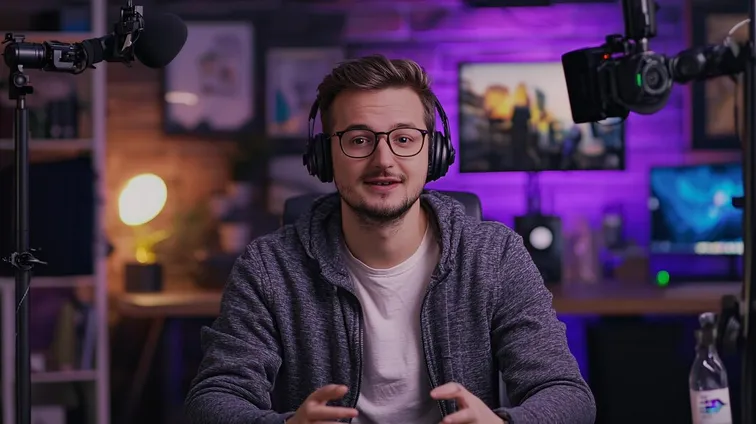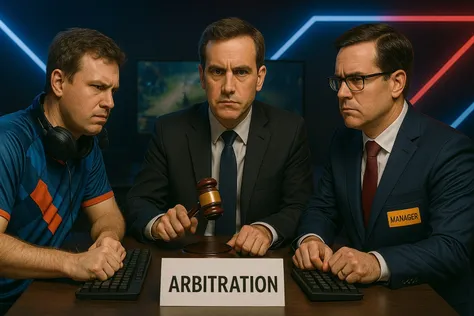Influencers who create audiovisual content may now be required to notify their activities as provision of on-demand audiovisual media services (ODAVMS) under a new interpretation by the Czech Council for Radio and Television Broadcasting (RRTV) and thus be subject to the same conditions as streaming platforms. This move has sparked a wave of reactions, with Culture Minister Martin Baxa announcing plans to clarify the situation through a legislative amendment. But what does the RRTV’s announcement really mean for influencers? In its press release, the RRTV highlighted that certain audiovisual content creators must comply with the rules set out in Act No. 132/2010 Sb., on ODAVMS. According to the RRTV, influencers whose content meets the legally defined criteria should notify the RRTV of their activities and be regulated in the same way as streaming platforms such as Voyo or Prima+.
This interpretation has drawn criticism from Culture Minister Martin Baxa. He argues that it is unfortunate that the current interpretation of the Act could also affect activities that do not constitute audiovisual media services in the typical sense. The minister has therefore announced that he will prepare an amendment to the ODAVMS Act to address this issue.
So, how should Czech influencers proceed until the situation is resolved in the legislative amendment?
Origin of the regulation and approaches in other European countries
The Czech ODAVMS regulation is based on the European Directive 2010/13/EU on audiovisual media services (Directive).[1] This regulation sets conditions for providing services that “compete” with traditional television media—typically streaming platforms like Netflix or HBO Max. According to the European Regulators Group for Audiovisual Media Services (ERGA), this can also include influencers whose content is consumed by a mass audience and generates significant revenues.
The general reason for applying ODAVMS regulation to some influencers is straightforward — given the ever-growing popularity of social media, it is desirable for entities with large follower base to adhere to standard audiovisual rules, especially regarding consumer protection, minors, harmful content, and advertising. This is one of the reasons why the Directive explicitly states that purely non-economic activities, such as private websites or amateur posts, are not subject to this regulation.
The approach of EU member states to implementing the Directive concerning influencers varies significantly. For example, in the Netherlands, influencers must register if they have more than 500,000 followers and have published at least 24 videos in the past year.[2] In Slovakia, influencers are required to register as on-demand service providers, while the Swedish regulator is preparing specific guidelines for influencers, emphasizing the protection of minors and transparency of commercial content.
In Lithuania, the number of followers of individual channels is currently being considered to determine whether they reach a “mass audience.” The German regulator Medienanstalt-NRW actively monitors social media and uses public tips to identify influencers who may be subject to regulation. In Poland, the approach focuses on financial thresholds: if an influencer’s income exceeds 75% of the minimum wage (approximately 600 euros per month), their activity is considered an economic service and is subject to regulation. The Austrian regulator excludes influencers with an annual income below 60,000 euros from these obligations.[3]
From this perspective, the RRTV’s press release does not significantly deviate from the European standard.
What is that supposed to mean?
It appears that the RRTV primarily intended to follow the above trends from other member states and apply ODAVMS regulation mainly to professional influencers producing audiovisual content on a daily basis, often of a commercial nature. The RRTV’s main goal in this regard was likely to ensure that it could effectively sanction influencers in case they violate relevant legal regulations, just as it does with television broadcasters or streaming platforms.
Unfortunately, the RRTV’s press release indeed allows for the interpretation that ODAVMS regulation and the obligation to register apply to virtually any influencer or vlogger with a public profile on YouTube, Instagram, or TikTok. This approach creates the impression that the regulation could also affect smaller creators who clearly do not meet the aforementioned criteria according to the Directive and the ERGA.
In our opinion, in practice the RRTV will likely focus only on influencers with a mass audience or promoters of products that are sensitive from a regulatory perspective, such as addictive substances, medicinal products, or gambling. Small creators, whose content is not economically comparable to that of traditional streaming platforms, are most likely not going to be targeted by the RRTV without further action.
How to navigate this situation?
If you are an influencer and have no issue complying with the current RRTV guidelines, feel free to register with the RRTV. Regardless of whether you choose to do so, we recommend that all influencers adhere to the basic audiovisual rules that might apply to them until the legislative situation is clarified. This includes, in particular, indicating product placements, avoiding harmful content (such as content that violates social media terms), and not promoting addictive substances, medicinal products, or gambling without prior legal consultation.
The RRTV, as well as other relevant authorities such as the Czech Trade Inspection Authority, will not be deterred by a lack of registration with the RRTV if they find significant violations of the relevant obligations.
If you have any questions regarding the legal obligations of influencers, please feel free to contact us. With our extensive experience in the regulation of audiovisual media services, we can help you better understand the situation and, if necessary, direct you to consultations with the RRTV to clarify your specific circumstances.
- [1] – This was amended in 2018 by Directive (EU) 2018/1808 of the European Parliament and of the Council.
- [2] – A similar procedure is also being considered in Italy and Spain.
- [3] – For more information on the approaches of individual EU member states, click here: https://erga-online.eu/wp-content/uploads/2023/12/ERGA-SG1-Vloggers-report-2023-final-version-for-publication.pdf?utm_source=chatgpt.com









